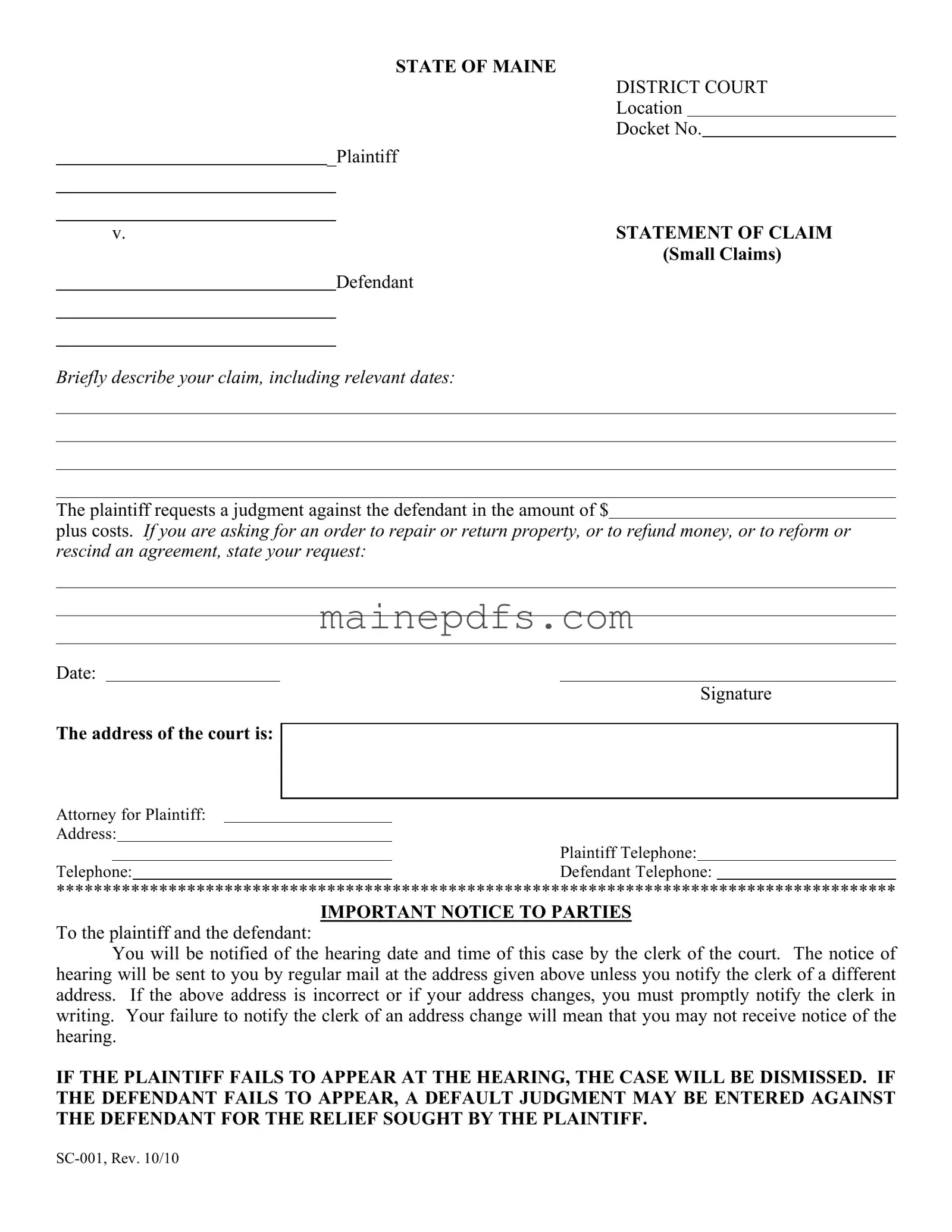Download Maine Sc 001 Template in PDF
The Maine SC-001 form is a crucial document used within the state's district court system for initiating a small claims case. It outlines the plaintiff's statement of claim against the defendant, including a brief description of the claim, relevant dates, and the requested judgment or action. This form also includes important instructions for both parties regarding court notifications and the implications of not appearing at the hearing.
Ready to pursue justice in a small claims court? Ensure your claim is heard by properly filling out the Maine SC-001 form. Click the button below to get started.
Make My Document Online

Download Maine Sc 001 Template in PDF
Make My Document Online

Make My Document Online
or
Click for PDF Form
A few steps left to finish this form
Finish Maine Sc 001 online — no paper, no scanner needed.

